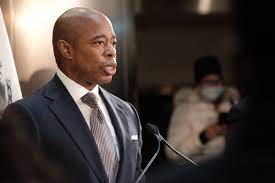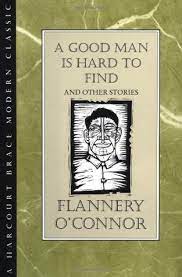Bits and Pieces

The Virus Is All Around Us
The coronavirus is spreading faster now than at any time since it was first reported on Dec. 31, 1919. But the mutation that’s raging across the world right now appears to be much less serious in terms of hospitalizations and deaths, according to the CDC.
Over the Christmas/New Year holidays, we had lots of family members and friends at the house. All of them had been vaccinated. Most of them observed the “protocols” of wearing masks and bumping fists. But, as in restaurants throughout the country, when it was time to eat, the masks came off.
Four contracted the virus. Two of them had been previously infected. I noticed that there didn’t seem to be any connection between proximity and contagion. The spouses did not contract it, despite sleeping in the same bed.
This was not what one would have expected, given the information coming out of the CDC. So, what is going on?
New Evidence of Protection Against COVID
Researchers with Imperial College London found that the presence of T cells from the common cold can provide some protection against the virus that causes COVID-19. The scientists assessed 52 contacts of newly diagnosed cases to pinpoint when they were first exposed, and determined that those who tested negative for COVID-19 had higher cross-reactive T cell levels.
And this just in: Cannabis compounds may prevent the COVID-19 virus from penetrating healthy human cells. Click here.
Meanwhile… You Can Leave the Masks at Home!
In the latest episode of “Why I Can’t Believe Dr. Fauci,” Pfizer board member and former FDA commissioner Dr. Scott Gottlieb said on Jan. 2 that cloth masks don’t provide much protection against the Omicron variant.
“This is an airborne disease,” Gottlieb said, speaking on Face the Nation. “We now understand that, and a cloth mask is not going to protect you from a virus that spreads through airborne transmission. It could protect better through droplet transmission, something like the flu, but not something like this coronavirus.”
In a recent report, the CDC admitted as much, but made the rather tepid argument that a cloth mask “may be” better than no mask.
“Cloth masks have been used in healthcare and community settings to protect the wearer from respiratory infections. The use of cloth masks during the coronavirus disease (COVID-19) pandemic is under debate. The filtration effectiveness of cloth masks is generally lower than that of medical masks and respirators; however, cloth masks may provide some protection if well designed and used correctly.”
Scary: This From a Supreme Court Justice?

During arguments made before the Supreme Court on Jan. 7, Justice Sonia Sotomayor claimed that 100,000 children were hospitalized or seriously ill with COVID-19. When I heard that, I thought: “No way!”
In fact, the number is about 3,500, according to CDC Director Rochelle Walensky.
“In some hospitals that we’ve talked to, up to 40% of the patients who are coming in with COVID are coming in not because they’re sick with COVID, but because they’re coming in with something else and have had COVID or the Omicron variant detected,” Walensky said.
More COVID confusion: Dr. Robert Malone, a virologist and immunologist who has contributed significantly to the technology of mRNA vaccines, issued a strong caution. “Think twice before you vaccinate your kids,” he said. “Because if something bad happens, you can’t go back and say, ‘Whoops, I want a do-over.’”
My Hope for Adams Is Falling Fast

In reviewing the surge in violent crime that plagued New York City under former mayor Bill de Blasio, I said that the new mayor, Eric Adams, has a great opportunity to turn the city around.
Since then, he’s done two things that have made me doubt him. First, he appointed Brendan McGuire to be the city’s Attorney General. And McGuire, it turns out, seems to be one of the new crop of AGs that believe they are entitled to, in effect, legislate laws they don’t believe in or laws against groups they support.
Now Adams has come out in support of a new bill that would give voting rights for city elections to about 800,000 non-citizens. The law applies to legal permanent residents, people with working papers, and so-called “Dreamers,” as long as they’ve been residents of the city for 30 consecutive days.
“About 1.1 million votes were cast in the recent mayoral election,” said Dan Stein, president of the Federation for American Immigration Reform. “With the addition of some 800,000 foreign nationals to the voter rolls, they will almost certainly have an impact on the outcome of future elections.”
So, Who Is Ray Epps?

Some conservative pols and commentators want to know.
What is known for sure is that he was repeatedly photographed and videotaped during the Jan. 6 fiasco prompting others to action.
He was on the FBI’s most-wanted page (concerning the fiasco) for six months. And then, mysteriously, his image was pulled off of it. He wasn’t charged. Hundreds of others that were less active were. So that got some thinking: Could Mr. Epps have been working for law enforcement?
In a recent hearing, Senator Ted Cruz asked Jill Sanborn, the FBI assistant director for national security, 10 questions about Epps and other possible undercover agents photographed at the event. Sanborn admitted that she is aware of Epps, but said she didn’t have “specific background for him.”
Cruz specifically asked whether Epps worked with the FBI. Sanborn declined to answer. He also asked whether any federal informants participated in the riots, encouraged the riots, or removed barriers.
“I cannot answer that,” Sanborn responded to each query.
“Five seconds after Mr. Epps whispered to a person, that same person began forcibly tearing down the barricades. Did Mr. Epps urge them to tear down the barricades?” Cruz asked.
“I cannot answer that,” Sanborn replied.
Senator Tom Cotton asked Assistant AG Matthew Olsen, the head of DOJ’s national security branch, a similar line of questions. Olsen said that he wasn’t aware of any plainclothes officers among the Jan. 6 crowd, and didn’t know whether any undercover agents entered the Capitol.
Olsen also said that he didn’t have any information about Epps. “This was a man on the most-wanted page for six months. Do you really expect us to believe that you don’t know anything about him?” Cotton asked.
“I simply don’t have any information at all,” Olsen responded.
The Jan. 6 committee issued the following statement shortly after the hearing: “Committee is aware of unsupported claims that Ray Epps was an FBI informant based on the fact that he was on the FBI Wanted list and then was removed from that list without being charged. The Select Committee has interviewed Mr. Epps. Mr. Epps informed us that he was not employed by, working with, or acting at the direction of any law enforcement agency.”
Innocence Project Update

Pervis Payne, middle, with his attorneys,
David Fletcher and Kelley Henry, Nov. 24, 2021
(Image: Brandon Dill/Innocence Project)
Pervis Payne spent the past 33 years on death row in Tennessee for a crime he’s always said he did not commit. Last month, he was finally removed from death row after the Shelby County District Attorney’s Office conceded that Pervis has an intellectual disability, which makes it unconstitutional to execute him.
Although there was a possibility that Judge Paula Skahan might rule on how Pervis will serve the rest of his sentence, instead she said she would issue a written ruling on his re-sentencing by Jan. 24, based on “compelling arguments” from both sides.
Nineteen family, friends, and prison officials had testified to Pervis’s “loving” and “gentle” character, and demonstrated that he would not pose a threat to society if released. In one instance, Pervis risked his life to save Captain Mosley, a veteran corrections officer, from an attack by another incarcerated individual that left him with 57 stitches.
Judge Skahan will ultimately decide whether Pervis should be given consecutive life sentences – meaning he would likely die in prison – or concurrent sentences, which would make him eligible for parole within six years.









